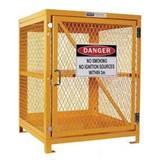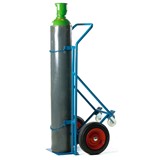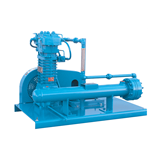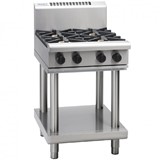The interests of gas producers and manufacturers are fundamentally aligned, and the two sectors should be working together for the national good, Peter Bury, Director of Strategy and Innovation at PACIA said in a recent statement.
Bury said policy had not caught up with the "tectonic changes" in the gas market, and as a result gas dependent sectors like the chemicals and plastics industries had suffered.
"The focus has been squarely on the returns of LNG exports without consideration for the value delivered to the economy by local gas users.
"The Australian economy has an extraordinary reliance on the chemicals and plastics industries. We make up 11.5 per cent of Australian manufacturing and supply 109 of Australia's 111 industries.
"We directly employ 60,000 people with a turnover of approximately $40 billion per annum, contributing $11.6 billion to Australia's GDP."
He said the chemicals and plastics industries relied on a stable supply of natural gas at a reasonable price because they not only used gas for energy, but they also used it as a 'transformative' agent, turning the natural resource into fertilisers, polyethylene plastic and packaging.
"In the absence of an effective policy there is no marketing competition in the major gas basins, which affects price and supply. Without stable gas supplies at reasonable prices, Australia stands to lose major manufacturing infrastructure such as ammonia plants.
The prime minister's Task Force on Manufacturing reported in 2012 that since the late 2000s, gas prices had risen by 70 per cent and were predicted to go higher. Australian manufacturers found the price per petajoule of gas jumping from $3 to $8 in a few years, with a further leap to $12 being signaled by gas producers.
The Task Force reported that many large manufacturers were finding it near-impossible to secure gas supply agreements beyond 2016, a situation that had become known as the 'gas cliff'. This was despite the Task Force reporting that there existed 184 years worth of accessible natural gas supplies in Australia.
"Clearly the current market mechanisms — especially around supply certainty and price — are not working well.
"Domestic manufacturers are subject to export parity pricing, which means we're being asked to pay the contract price paid by North Asian importers, for an Australian resource."
Bury said it was a misconception that PACIA was seeking a 'gas reservation' policy, where governments would hold back gas reserves for domestic consumption.
"We believe in a properly functioning regulated market, with all of the required components in place, over reservation. Manufacturers want gas producers to be profitable and financially viable as a long term industry — if LNG exports are a part of their profitability, that's a good thing for Australian industry.
"However, we also note that the east coast of Australia has no domestic gas policy, as the United States and Canada have. And we also see a lack of competition among large gas producers.
"The ACCC could look at collective marketing in the major gas basins which would introduce competition and unhook the pricing structure from the long-term contract price for delivery into Korea and Japan."
Peter Bury said the gas producers should not see their LNG exports as coming at the expense of Australian manufacturers, just as manufacturers shouldn't see themselves as viable only if gas producers didn't export LNG.
He concluded: "There's a broader national interest that should come out of this debate. Viable manufacturing and profitable gas production are complimentary goals."











